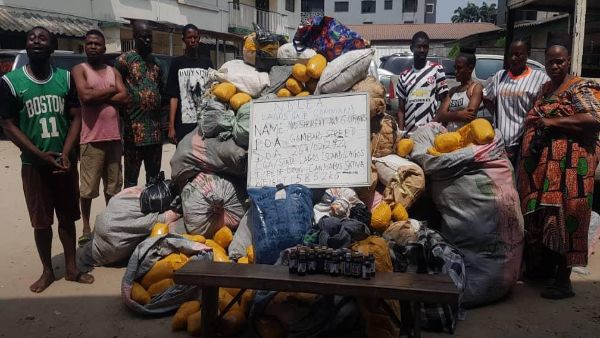From Israel to Ukraine to the USA: How HR Responds to Global Conflicts

Mar 25, 2025
Since October 2023, the Israel-Hamas conflict has sent economic shockwaves through workplaces, industries, and global markets. What started with the and the subsequent military response has evolved into a prolonged crisis, reshaping labor markets and business operations in the region.
One of the most was the workplace , with many facing. This only deepened an already dire employment crisis in Palestine, where had left many struggling even before the conflict escalated.
On the Israeli side, the tech sector—one of the country’s economic pillars—was hit hard, with being mobilized for military service, including executives. This level of disruption forced companies to .
By , even after a , the region remains volatile, with fresh military strikes in keeping uncertainty at an all-time high. The The Bank of Israel projects that the war’s economic burden could hit , fueling rising prices and forcing austerity measures that will be felt across businesses and households alike.
For companies operating in the region, this . Labor shortages due to military mobilization, , and soaring business costs have pushed companies into uncharted territory, testing their resilience and adaptability in ways few could have anticipated.
From what I have found, companies tend to provide their employees with support and flexibility during times of conflict. For example, allowing employees to work from home, providing paid time off for employees to deal with personal matters, and offering mental health resources. A few historical precedents…


During the Iraq War, many companies in the United States provided various forms of support to their employees, . AT&T, for example, provided its employees with a one-time bonus of $1,000. This bonus was given to about 200,000 of its U.S. employees after lawmakers successfully passed tax reform in 2017. Other companies, such as Dyncorp, a firm based in Texas, who were dealing with combat-related mental health issues.

During the current war in Ukraine, companies in both Ukraine and Russia, support their workers with proactive, evacuation, provisional, and financial support. Other companies, like JustAnswer, continues to support their workers in a number of ways. To quote…
Russia’s invasion of Ukraine last February was a major historical event. But for our company, the war was personal. While our headquarters are halfway around the world in San Francisco, JustAnswer employs more than 300 people, about one-third of our workforce, in Ukraine. These humans fill critical roles not just in IT but also HR, finance, and other departments. Knowing our employees were in danger required immediate action to relocate people to safer locations.
Nearly a year later, while much of Silicon Valley is no longer talking much about Ukraine, our support continues stronger than ever and in new ways: from funding mental health centers and drone pilot schools to delivering diesel generators. Not only have we kept the lights on for our Ukraine employees, but we have also hired over 50 people there since this war started. Through all this, we have learned crucial lessons about life, business, and humanity that anyone leading a team through a stressful crisis could benefit from.
Many companies have donated to humanitarian relief efforts. For example, Epic Games raised $144 million for Ukraine relief efforts, donating two weeks’ worth of proceeds from its hit video game Fortnite. Other companies like Boeing, Visa, Mastercard, Lilly, Abbott, Bunge, GE, IBM, Johnson and Johnson, Pfizer, Wabtec, Cargill, Mary Kay, Caterpillar, Delta, Baker McKenzie, and ADM have also made significant donations to support Ukraine. And even more company actions are cited on this page.
Companies may also make changes to their business operations in order to accommodate the needs of their employees during wartime. For example, a company may need to relocate its operations to a safer location. In 2022, IBM relocated its operations from Ukraine to Poland in response to the Russian invasion of Ukraine. The company also provided financial assistance and relocation support to its employees who were affected by the war. And in 2014, ExxonMobil relocated its employees from Russia to other countries in response to the annexation of Crimea. The company also suspended its operations in Russia and divested from its Russian assets.
I find all these measures best practices in times of war; no matter where the conflict happens. I think its not only good for the employer brand but, overall, it is the right thing to do. Hopefully, war will not come to our shores again. When I watch the news however, I can’t help but wonder not if, but when. Should that day come, here is a checklist I suggest companies follow. Please make a note of them and pray you never need it.
Should the worst happen here at home:
And it should go without saying but I will mention it anyway. According to your own faith, pray that the situation in Ukraine is finally resolved, and all’s well soon. It looks that the end is near but, you never know. In fact, praying now would be prudent. I’ll go first. God bless America. Amen.












